Search
Search Results
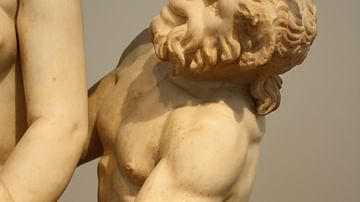
Definition
Pan
Pan is a figure from Greek mythology who was originally a pastoral god from Arcadia. It was believed Pan dwelt in the mountains and forests of Greece. He was the patron of shepherds, hence one of his attributes is the lagobolon - a hare trap...

Definition
Pan Flute
The pan flute or panpipes (syrinx) was a musical wind instrument first used by the ancient Greeks. Most commonly played by shepherds, the earliest use was in the Cycladic islands in the third millennium BCE, and representations of the instrument...
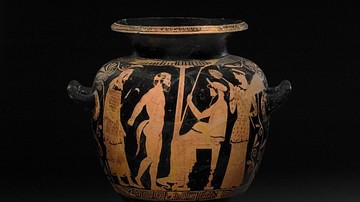
Definition
Midas
Midas was a mythical king of Phrygia in Asia Minor who was famous for his extraordinary ability to change anything he touched into gold. This gift was given to him by Dionysos in thanks for his hospitality to the wise satyr Silenus. Midas...
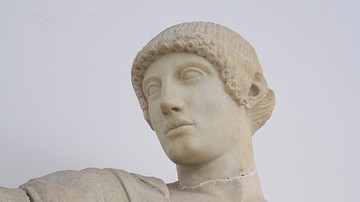
Definition
Apollo
Apollo was a Greek god associated with the bow, music, and divination. The epitome of youth and beauty, source of life and healing, patron of the arts, and as bright and powerful as the sun itself, Apollo was perhaps the most loved of all...
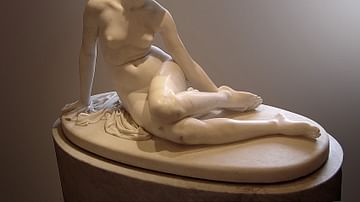
Definition
Nymph
A nymph (Greek: νύμφη, nymphē) in Greek and in Roman mythology is a young female deity typically identified with natural features such as mountains (oreads), trees and flowers (dryads and meliae), springs, rivers, and lakes (naiads) or the...
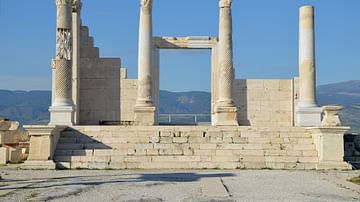
Definition
Phrygia
Phrygia was the name of an ancient Anatolian kingdom (12th-7th century BCE) and, following its demise, the term was then applied to the general geographical area it once covered in the western plateau of Asia Minor. With its capital at Gordium...
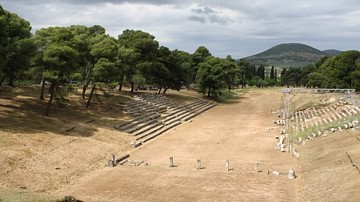
Definition
Stadium
In the ancient Greek world, the word stadium or stadion referred to a measurement of distance, a foot-race, and the place where the race was held and observed by spectators. The Great Games Greek sporting events were closely connected...
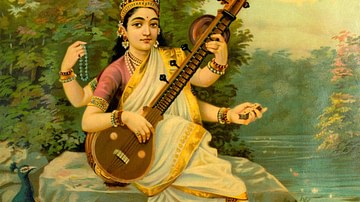
Definition
Saraswati
Saraswati (also Sarasvati) is the Hindu goddess of learning, wisdom, music, and aesthetics. She is also known as Bharati (eloquence), Shatarupa (existence), Vedamata ('mother of the Vedas'), Brahmi, Sarada, Vagisvari, and Putkari. As Vac...
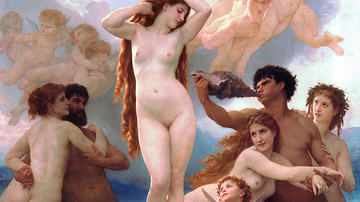
Definition
Greek Mythology
Greek mythology was used as a means to explain the environment in which humankind lived, the natural phenomena they witnessed and the passing of time through the days, months, and seasons. Greek myths were also intricately connected to religion...
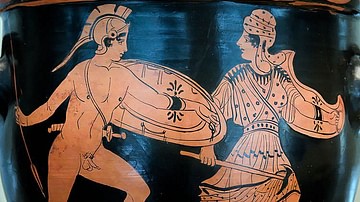
Article
A Visual Who's Who of Greek Mythology
Achilles The hero of the Trojan War, leader of the Myrmidons, slayer of Hector and Greece's greatest warrior, who sadly came unstuck when Paris sent a flying arrow guided by Apollo, which caught him in his only weak spot, his heel...